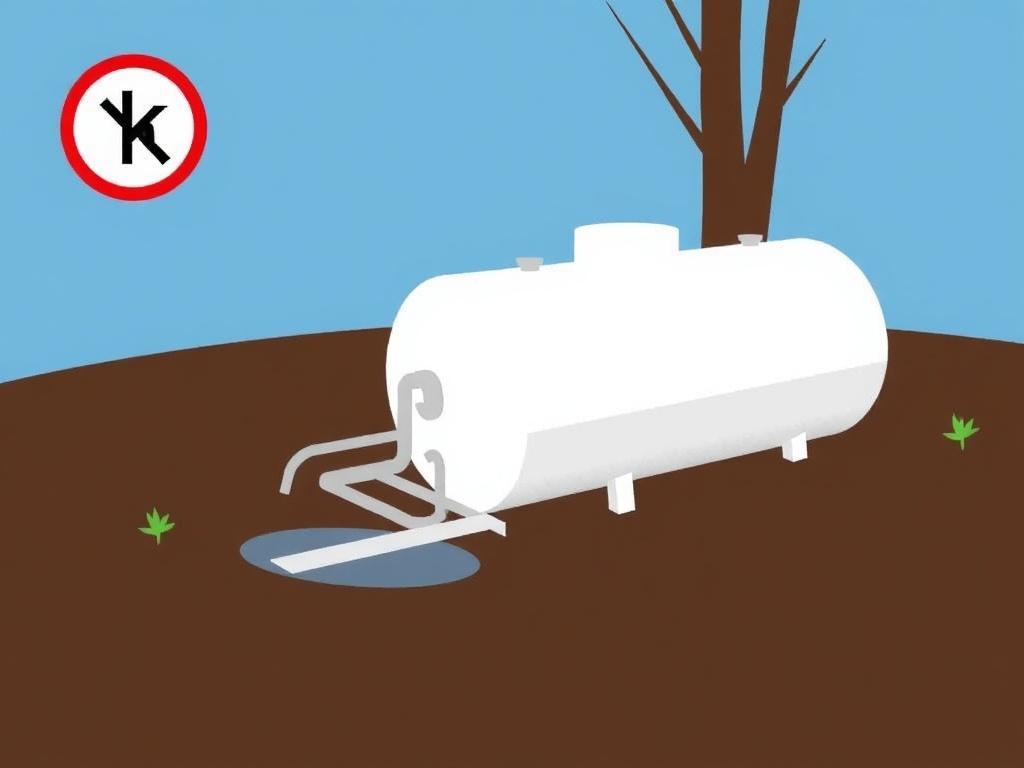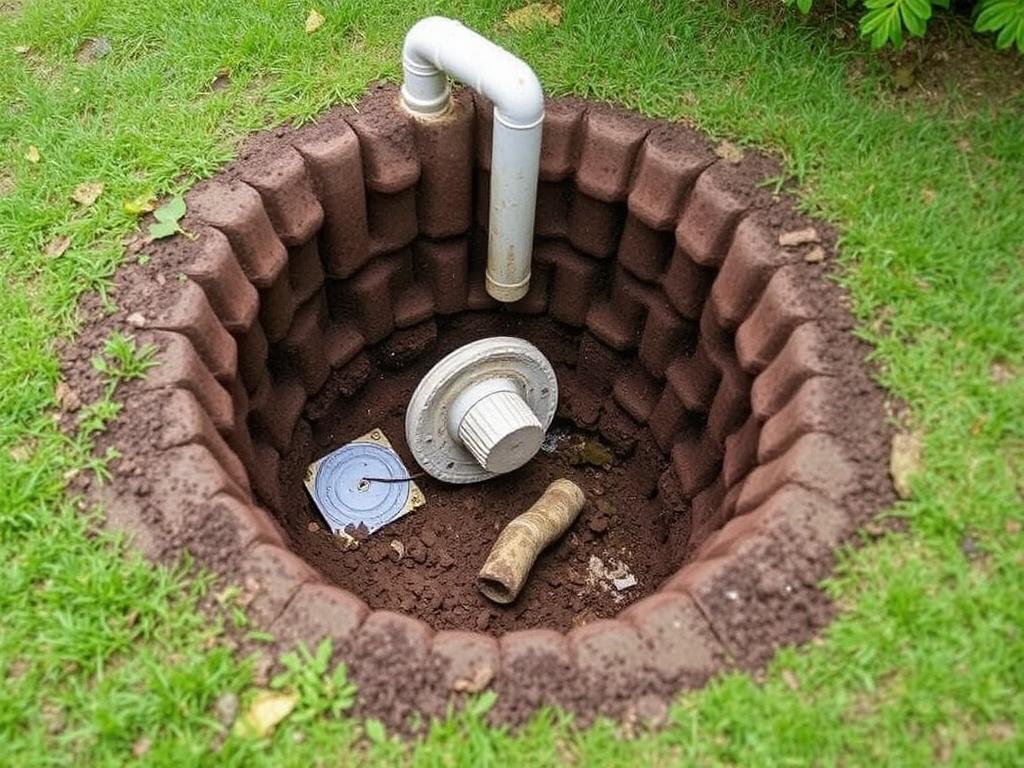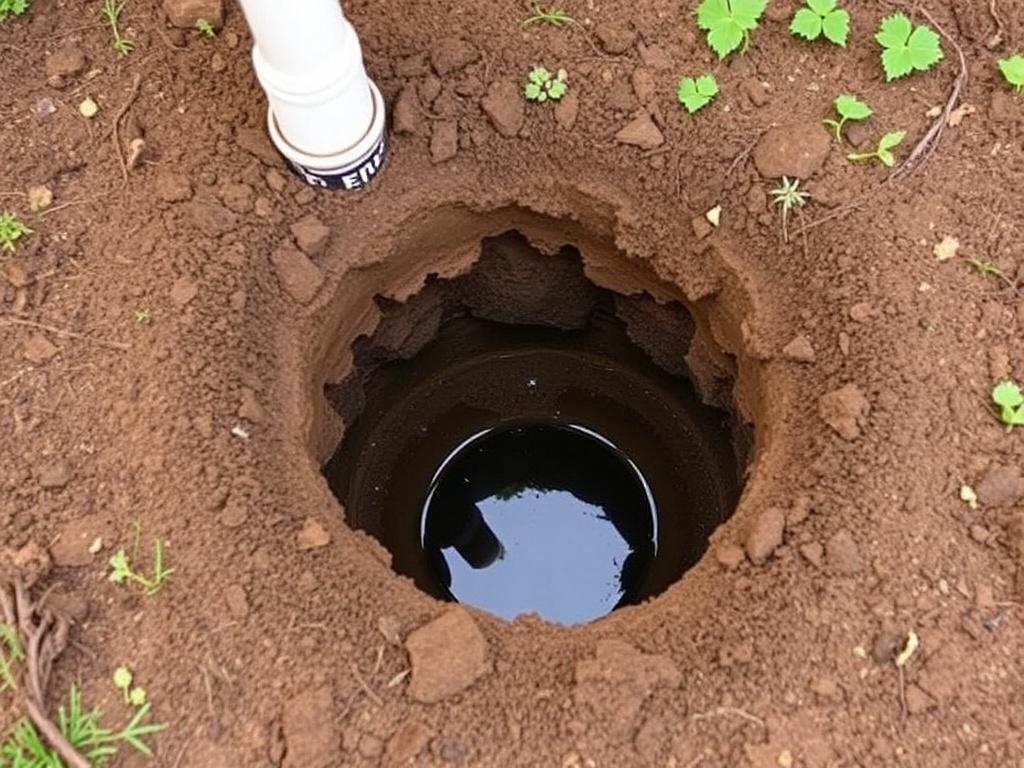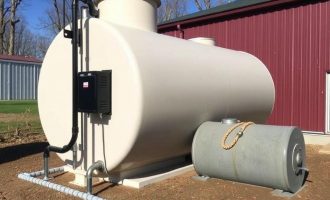- Understanding Your Septic System
- Why Septic Tank Pumping is Important
- Common Signs Your Septic Tank Needs Pumping
- 1. Slow Drains
- 2. Gurgling Sounds in Plumbing
- 3. Pooling Water or Muddy Spots Near the Septic Tank or Drain Field
- 4. Foul Odors in the Yard or Home
- 5. Sewage Backup in the House
- 6. Lush, Green Grass Over the Septic Tank or Drain Field
- How Often Should You Pump Your Septic Tank?
- Steps to Take When You Notice Septic Tank Problems
- What Happens if You Don’t Pump Your Septic Tank?
- How to Find a Professional Septic Pumping Service
- Simple Tips to Help Extend the Life of Your Septic System
- Frequently Asked Questions About Septic Tank Pumping
- How can I tell if my septic tank is full?
- Is septic tank pumping messy?
- Can I pump my septic tank myself?
- What happens during septic tank pumping?
- How much does septic tank pumping cost?
- Can regular maintenance eliminate the need for pumping?
- Conclusion
Understanding Your Septic System
A septic tank is an essential component of many homes, especially in rural areas where municipal sewer systems aren’t available. It’s a buried, watertight container made of concrete, fiberglass, or plastic that holds wastewater from your household plumbing. Once wastewater flows into the tank, solids settle to the bottom while oils and lighter materials rise to the top. The clear middle layer of effluent then moves into the drain field for treatment.
Although septic tanks are designed to operate efficiently for years, they require regular maintenance—particularly pumping—to keep everything working smoothly. When a septic tank is neglected, dangerous situations can arise that not only cost you a lot of money but also threaten your health and the environment. This article explores the common signs your septic tank needs pumping so you can act before problems get worse.
Why Septic Tank Pumping is Important
Septic tanks collect solid waste, but these solids don’t just disappear over time; instead, they accumulate at the bottom as sludge. Over months and years, the sludge layer grows thicker, reducing the tank’s storage capacity and causing solids to overflow into the drain field. When the drain field is clogged with solids, it can no longer absorb wastewater properly, leading to system failure.
Regular septic tank pumping removes the built-up sludge and scum, helping prevent blockages, bad odors, and expensive repairs. Skipping pumping means risking backups in your home, foul smells around your yard, and contamination of groundwater. Most experts recommend septic tank pumping every 3-5 years, but this can vary based on tank size, household size, water usage, and types of waste produced.
Common Signs Your Septic Tank Needs Pumping

Knowing the signs your septic tank needs pumping can save you from costly headaches. If you notice any of these indicators, it’s time to schedule professional septic pumping.
1. Slow Drains
If you notice that sinks, bathtubs, or toilets are draining more slowly than usual, this is a common early warning sign. Slow drains indicate your septic system may be clogged or at capacity. When sludge and scum occupy too much space, wastewater cannot flow freely, causing sinks and tubs to back up.
2. Gurgling Sounds in Plumbing
Strange noises from your drains, such as gurgling or bubbling, suggest trapped air or slow drainage inside your pipes. Many homeowners overlook this subtle symptom, but gurgling noises almost always mean your septic system needs immediate attention.
3. Pooling Water or Muddy Spots Near the Septic Tank or Drain Field
Check your yard for soggy areas or standing water near the septic system or drain field. This could mean the drain field is clogged, preventing proper dispersion of wastewater. Pooling water not only smells unpleasant but also attracts insects and can cause damage to nearby trees or landscaping.
4. Foul Odors in the Yard or Home
One of the most obvious signs your septic tank needs pumping is bad smells. If you detect a pungent, sewage-like odor either around the septic tank area or inside your home, it indicates waste is surfacing or gases are escaping due to system overload or blockage.
5. Sewage Backup in the House
The worst sign is sewage coming back into your home through drains or toilets. This situation is not only disgusting but also hazardous. A backup means your septic tank is full or your drain field is fully saturated.
6. Lush, Green Grass Over the Septic Tank or Drain Field
Unexpectedly lush or bright green grass over the septic tank or drain field can be a sign that excess nutrients from wastewater are surfacing. While the grass may look healthy, this indicates system failure and potential contamination of soil and groundwater.
How Often Should You Pump Your Septic Tank?
There’s no one-size-fits-all answer to how frequently you should pump your septic tank, but several factors influence the timing. The size of your tank, how many people live in your home, water usage habits, and whether you use a garbage disposal all affect how quickly solids accumulate.
Here’s a helpful reference table to guide you on pumping frequency:
| Household Size | Tank Size (Gallons) | Recommended Pumping Frequency |
|---|---|---|
| 1-2 people | 750 – 1000 | Every 5-7 years |
| 3-4 people | 1000 – 1250 | Every 3-5 years |
| 5+ people | 1250+ | Every 2-3 years |
Using a garbage disposal, excessive water use, or incorporating non-degradable materials into the system (like wipes or chemicals) can reduce these intervals. Regular inspections can help catch problems before they escalate.
Steps to Take When You Notice Septic Tank Problems
If you observe any signs your septic tank needs pumping, prompt action can prevent a full system failure. Here’s what you should do:
- Stop Using Excess Water: Try to minimize water usage to prevent additional strain on the septic system.
- Schedule Professional Pumping: Call a licensed septic tank service to pump out accumulated solids safely.
- Avoid Dumping Chemicals: Harsh chemicals can kill the beneficial bacteria in your tank, worsening problems.
- Inspect Drain Field: Have professionals check the drain field to ensure it is functioning and not clogged.
- Plan Regular Maintenance: Set up a schedule for periodic inspections and pumping to maintain your septic system health.
Attempting DIY pumping or ignoring symptoms can lead to costly failures and environmental contamination.
What Happens if You Don’t Pump Your Septic Tank?
Ignoring the signs your septic tank needs pumping can result in serious consequences over time. Once sludge fills the septic tank, solids begin to escape into the drain field, clogging soil pores and preventing wastewater from filtering properly. This causes backups, system failure, and environmental hazards.
Here’s a breakdown of potential risks:
- Costly Repairs: Replacing a full drain field or damaged lines can cost thousands of dollars.
- Health Hazards: Raw sewage backups increase infection risk for you and your family.
- Environmental Damage: Leaching sewage pollutes nearby water sources and soil.
- Unpleasant Odors: Lingering smells make living conditions uncomfortable.
- Property Damage: Flooded yards and plumbing backups can damage your home and landscaping.
Preventing these issues by knowing the early signs your septic tank needs pumping is the smartest approach for homeowners.
How to Find a Professional Septic Pumping Service

When it’s time to pump your septic tank, hiring a qualified, licensed professional is essential for a thorough job. Start by asking neighbors or local acquaintances for recommendations. You can also check online reviews or contact your local health department for licensed contractors near you.
Here are some tips for selecting the right septic pumping service:
- Ensure the company is licensed and insured.
- Confirm they use proper equipment and disposal methods.
- Request an estimate before the job starts.
- Ask about experience with your type of system.
- Verify if they offer emergency pumping services.
By choosing a reputable company, you can trust your septic tank pumping will be handled safely and effectively.
Simple Tips to Help Extend the Life of Your Septic System

Besides knowing the signs your septic tank needs pumping, adopting healthy habits can extend the life of your system:
- Conserve Water: Excess water strains the septic tank and drain field.
- Don’t Flush Non-Degradable Items: Avoid flushing wipes, feminine products, or grease.
- Careful What You Put Down Drains: Avoid harsh chemicals and limit food scraps entering the system.
- Regular Inspections: Schedule professional inspections about every 1-3 years.
- Maintain Your Drain Field: Avoid driving or planting trees over the drain field.
Consistent care reduces the likelihood of sudden septic failures and helps keep your home safe and odor-free.
Frequently Asked Questions About Septic Tank Pumping
How can I tell if my septic tank is full?
You might notice slow draining, foul odors, wet areas near the tank, or sewage backups. These are clear signs the tank is full and needs professional pumping.
Is septic tank pumping messy?
Professional septic pumping companies use vacuum trucks and follow sanitary procedures to ensure the pump-out is clean and does not leave a mess on your property.
Can I pump my septic tank myself?
DIY pumping is risky and often illegal. It requires specialized equipment and knowledge to avoid health hazards and environmental contamination.
What happens during septic tank pumping?
Technicians locate the tank, open the lid, and use a vacuum truck to remove sludge and scum. They inspect the tank for damage and then securely close it.
How much does septic tank pumping cost?
Costs vary depending on location, tank size, and company but expect to pay anywhere from $200 to $500 for professional pumping.
Can regular maintenance eliminate the need for pumping?
No. While maintenance can slow sludge buildup, solids will eventually accumulate, meaning pumping cannot be completely avoided.
Conclusion
Your septic system quietly works behind the scenes every day to handle your household wastewater, but it requires attention to keep it functioning properly. Learning the key signs your septic tank needs pumping—from slow drains to foul odors—can help you avoid messy, costly problems. Regular pumping, combined with smart water usage and proper disposal habits, will extend the life of your system and protect your home and the environment. When in doubt, contacting a licensed septic professional ensures your system remains safe and efficient for years to come. Keeping an eye on these warning signals and acting promptly promises peace of mind and a smoothly running septic system.
Помогла вам статья?






